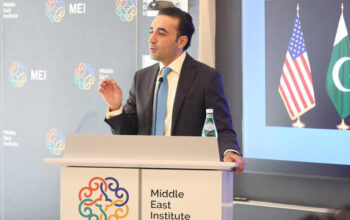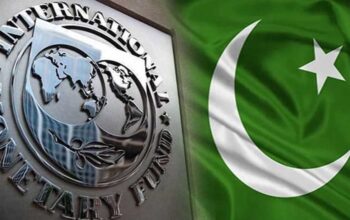Pakistan must quickly arrange at least USD 7 billion in financing from others sources to avert imminent default on external obligations
By Staff Reporter
ISLAMABAD: With Pakistan and the International Monetary Fund (IMF) deadlocked over the issue of energy subsidies, the revival of a suspended Fund bailout will have to wait until after the approval of the national budget for the next fiscal, it became clear late Wednesday.
The weeklong talks between the two sides at Doha, Qatar ended in stalemate, setting the country’s beleaguered government the uphill task of mustering a dollar injection to the tune of USD 7 to USD 9 billion.
The Doha talks were part of the seventh review of the country’s economic reform program under the USD 6 billion Enhanced Fund Facility (EFF) program under discussion.
The Fund wants Pakistan to abolish petroleum fuel and electricity subsidies, a reform measure to which the previous government committed during the sixth review. However, the now ousted government went back on its word.
What is more, a little over a week ahead of his exit, Khan cut pump prices a little and announced a freeze on price increases until the next budget.
The new government, representing the Pakistan Democratic Movement (PDM), is reluctant to abolish what the IMF calls unfunded subsidies because of the inflationary pressure of the measure.
Prime Minister Shehbaz Sharif argues the people of Pakistan, already facing economic hardship, are in no shape to bear the brunt of a fresh wave of inflation. More to the point, the coalition is in no shape to weather the political backlash of such a measure, especially with Khan agitating for it to immediately resign and call general elections.
The development leaves Pakistan teetering on the brink of default on its external obligations unless it can quickly raise financing to the tune of USD 7 to USD 9 billion from non-IMF sources.
Pakistan has drafted help from friendly countries in this department earlier, but it is hard to say how successful any such enterprise would be in the current environment.
The Fund staff and Pakistani authorities agreed to continue talks – which sounds like just another way of saying the IMF staff would love to hear Pakistan say it is abolishing the subsidies.
The IMF has also made clear the revival of the program would depend largely on how well Pakistan’s budget for fiscal year 2022-23 is geared towards achieving reform program signed up by Pakistan – the Memorandum of Financial and Economic Policies (MEFP) of the Fund program.
The latest round of talks between the two parties was held in Doha, Qatar from May 18 to 25, with a view to evolving consensus on a staff level agreement, but the two parties failed to make any headway.
In Washington DC, the IMF issued a statement on the conclusion of the weeklong parleys, saying a Fund mission led by Mr. Nathan Porter had held both in-person and virtual discussions in Doha, Qatar with the Pakistani authorities on policies to help bring about macroeconomic stability and sustainable growth in the country.
In his own statement issued at the conclusion of the mission, Mr. Porter said: “The mission has held highly constructive discussions with the Pakistani authorities aimed at reaching an agreement on policies and reforms that would lead to the conclusion of the pending seventh review of the authorities’ reform program, which is supported by an IMF Extended Fund Facility arrangement.
“Considerable progress was made during the mission, including on the need to continue to address high inflation and the elevated fiscal and current account deficits, while ensuring adequate protection for the most vulnerable. In this regard, the further increase in policy rates implemented on May 23 was a welcome step.
“On the fiscal side, there have been deviations from the policies agreed in the last review, partly reflecting the fuel and power subsidies announced by the authorities in February. The team emphasised the urgency of concrete policy actions, including in the context of removing fuel and energy subsidies and the FY2023 budget, to achieve program objectives.”
“The IMF team looks forward to continuing its dialogue and close engagement with Pakistan’s government on policies to ensure macroeconomic stability for the benefit all of Pakistan’s citizens”.
Yousuf Nazar, a Pakistani economist based in the UK, tweeted saying the country seemed headed into another phase of the economic crisis as the IMF had refused to release funds under the 2019 agreement.
“Brace for a weaker rupee”, he said. “Default? I hope not if Saudis/Chinese come to [Pakistan’s] rescue”.
Copyright © 2021 Independent Pakistan | All rights reserved




